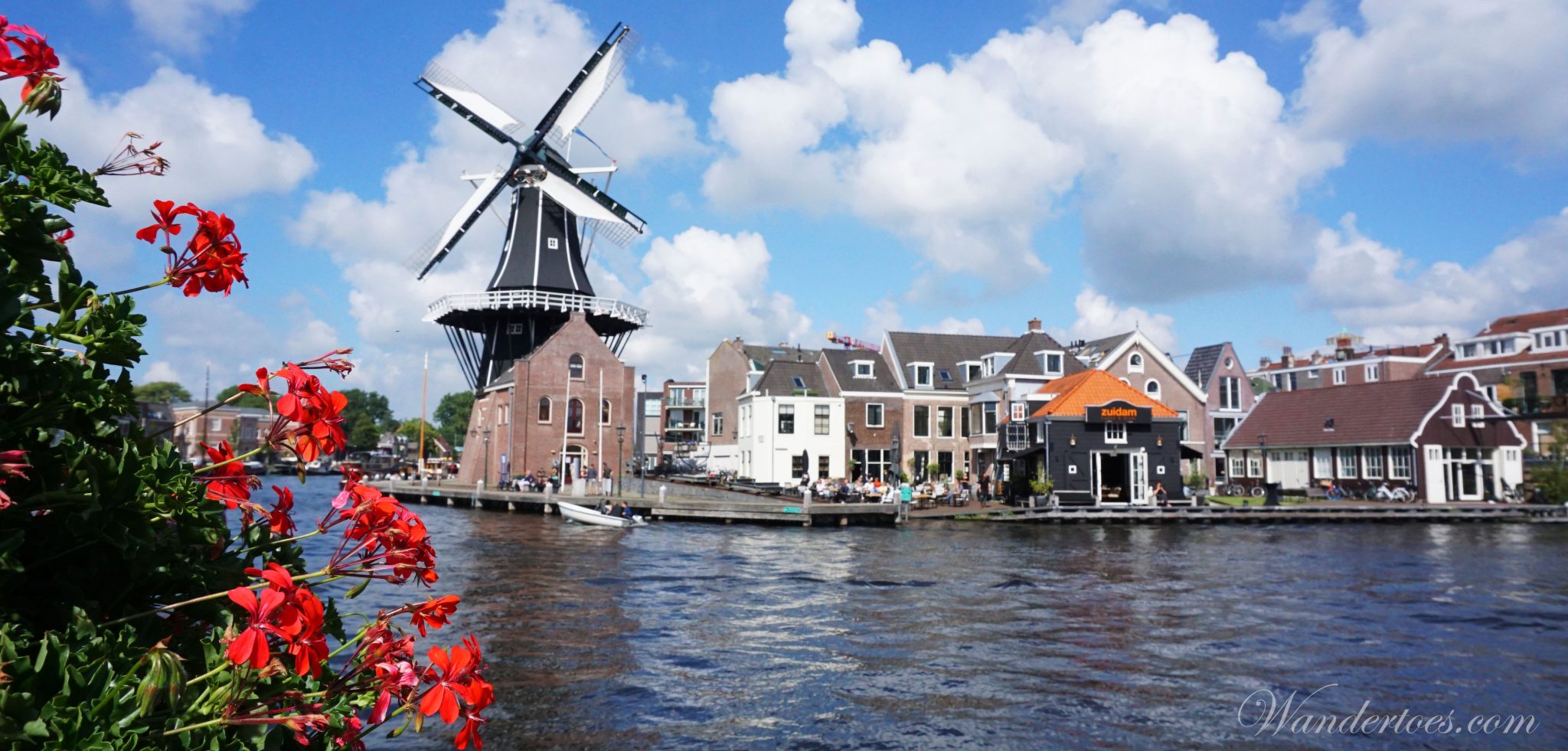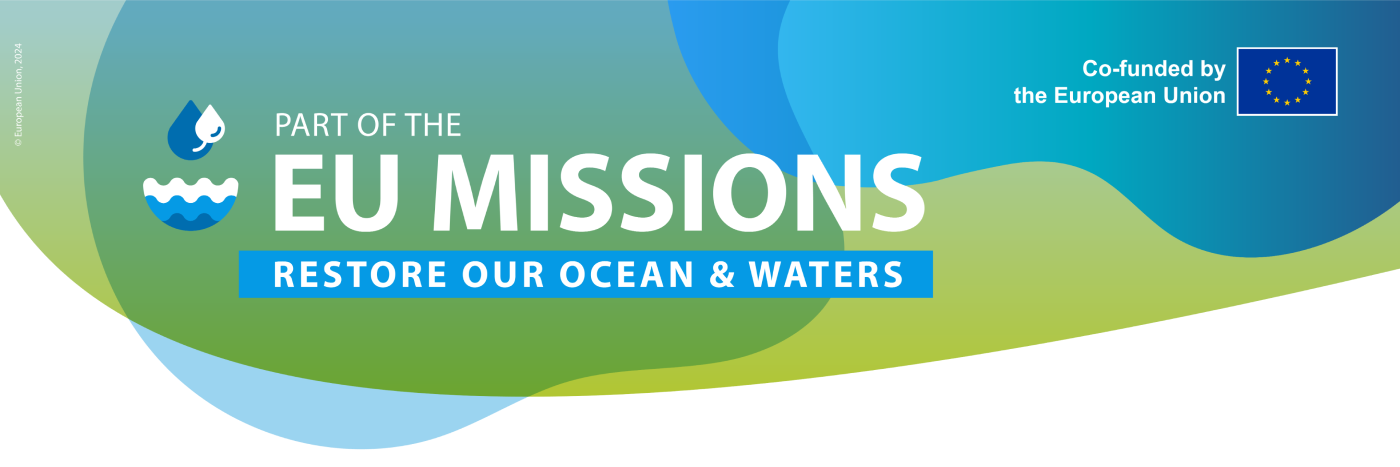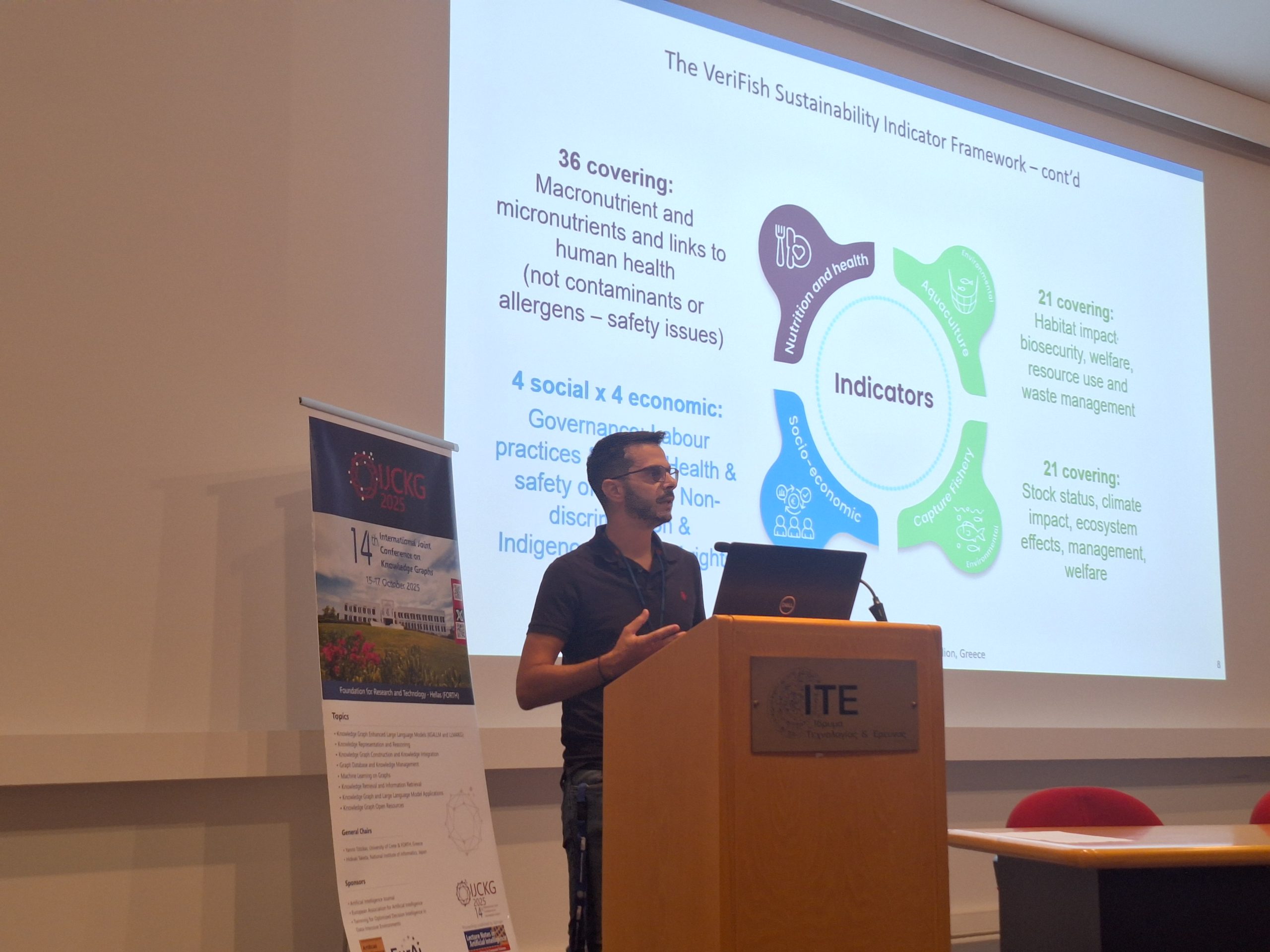Rome, August 2025 | FAO Headquarters
This week, VeriFish was proudly represented at the 14th International Food Data Conference (IFDC) in Rome, hosted at the headquarters of the Food and Agriculture Organization of the United Nations (FAO).
Organised under the theme “Food composition databases: application for healthy diets and sustainable agrifood systems transformation,” the IFDC brought together over 180 global experts working on food composition data — a cornerstone of modern nutrition policy, dietary guidelines, and sustainability research.

Bringing VeriFish to the Global Food Data Community
VeriFish was presented by EuroFIR, a key partner in the project and leader of our nutrition and data harmonisation work. Our session focused on how VeriFish is helping people make seafood choices that are good for them and good for the planet — using trusted data and scientific tools.
🔹 What we shared at IFDC:
- Today, there is no simple way for consumers to understand how seafood compares to other proteins in terms of nutrition, sustainability, and climate impact.
- VeriFish is developing a unified framework that includes a nutrient quality score, allowing seafood to be ranked by its contribution to human health — in clear, science-based terms.
- These indicators will be made available through the VeriFish mobile app, currently in development. This app will empower users — from retailers to home cooks — to make informed, responsible seafood decisions using just their smartphone.
By presenting at IFDC, we were able to bring this innovative approach to the attention of the international experts who create and maintain the data behind national dietary guidelines, public health policies, and food safety regulations. This ensures that our work is not only scientifically robust, but also aligned with global standards and ready for real-world application.

Turning Complex Science into Practical Tools
The VeriFish Sustainability Indicator Framework, developed collaboratively by our consortium, is grounded in evidence from environmental, nutritional, and socio-economic data. It includes:
- A nutrient pillar using harmonised food composition databases (including EuroFIR’s FoodExplorer and FAO/INFOODS)
- An environmental pillar assessing overfishing, bycatch, emissions, and habitat impact
- A socio-economic pillar covering labour rights, transparency, and ethical sourcing
Our goal is to transform this science into intuitive, usable tools for people who make decisions every day — from seafood suppliers and restaurants to teachers, parents, and shoppers.
Celebrating Leadership in Food Composition
We also extend our heartfelt congratulations to Paul Finglas, Director of EuroFIR, who was awarded the Nevin Scrimshaw Award during the conference. This prestigious honour recognises career-long excellence in the field of food composition — especially for contributions in low- and middle-income countries.
Paul’s keynote on building an open-access European Food Composition Database for EFSA further underlined the value of harmonised, high-quality data in ensuring nutrition security, supporting research, and empowering policy.

From Data to Trustworthy Choices
VeriFish’s presence at IFDC 2025 marked a milestone in our mission to make seafood sustainability visible, verifiable, and meaningful to consumers across Europe and beyond.
Thanks to the commitment of the VeriFish consortium and the expert leadership of EuroFIR, we are translating complex nutritional science into tools that promote responsible consumption, build consumer trust, and support healthier diets.
Stay tuned for the release of the VeriFish app and explore how we’re integrating these tools into communication campaigns, seafood labelling, and sustainability education.



